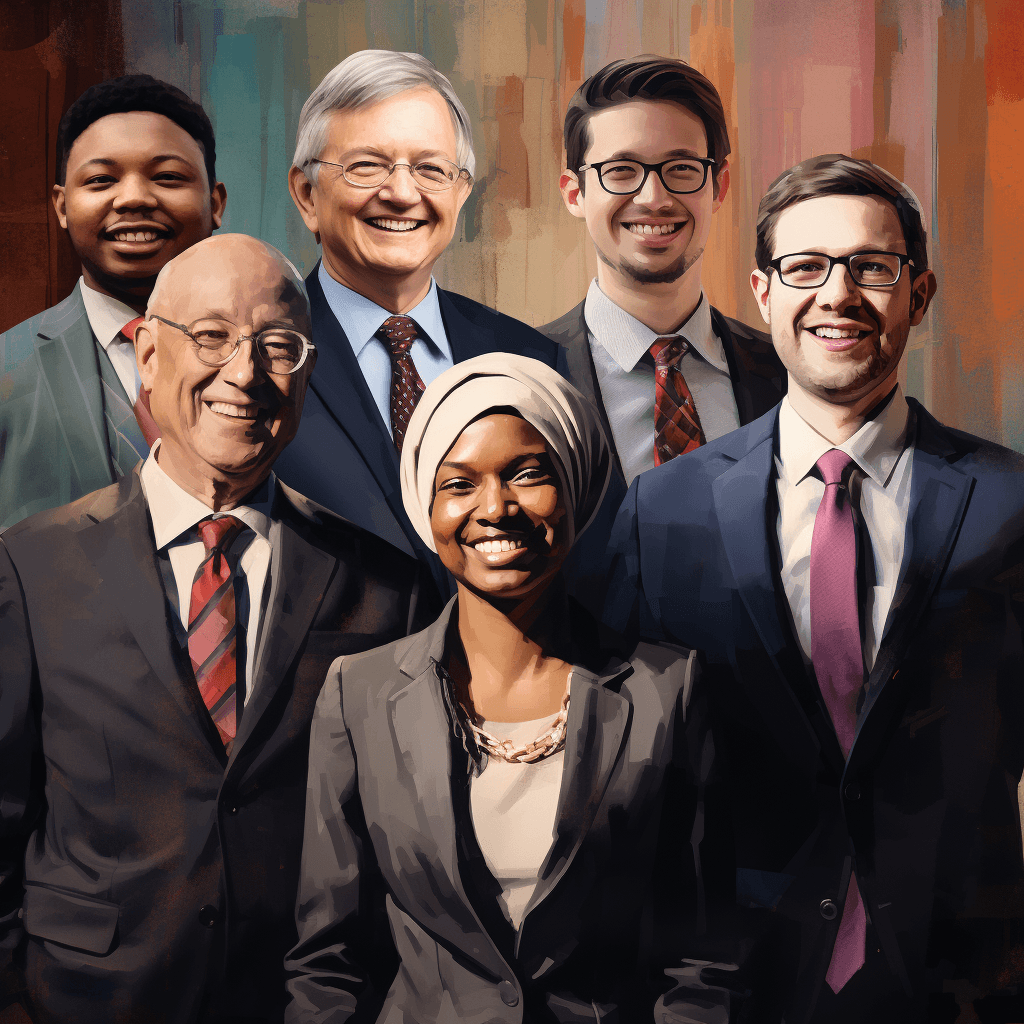
7 Ways Independents Impact Elections — Even if They Don't Win
Independent candidates often face an uphill battle when it comes to winning national elections, though they fare better at state and local levels. They tend to lack the brand awareness, financial backing, and institutional support that major party candidates enjoy. This can make it especially challenging to secure victory.
However, the impact of independent candidates goes far beyond whether they can claim victory on election day. This is reflected both in the number of Americans who now identify as independents and in the increased amount of exposure for indy campaigns on social and legacy media platforms.
Read on as we explore how independent candidates influence elections and shape the political landscape overall.
By the Numbers: Independents in America
It should come as no surprise that the numbers for independent candidates and voters are growing each election. As a percentage, people who identify as independent are now higher than the number of voters registered in both establishment parties together. They now represent 51% of eligible voters.
A recent headline proclaimed that “If ‘Independent’ were a party, it could dominate American politics.”
As far back as 2016, polling showed that as many as 47% of American voters would consider a third-party candidate. Looking forward to the 2024 election, that number is more than half of the voting public - 53% - including 34% of Republicans and 45% of Democrats.
Although there is still a wide gap in the level of support between independents who lean toward one party or another, Pew Research found that those who proclaim independence are overall more likely to support progressive causes like LBGTQ+ rights and marijuana legalization.
Midterm elections usually swing Congress and many governorships to the opposing party. However, the 2022 midterms prevented a red wave as independent voters went for Democratic candidates by a margin of 2%. Exit polling conducted by Edison Research found that the number of self-identifying independent voters in the mid-terms was 31%.
Both parties are wooing independent voters, spending as much as $450,000 per week on digital ads in swing states.
The bulk of voters identifying as independent tends to be younger, and this is nothing new. What is historic is the number of people remaining in the indie camp as they get older.
So far, there are two declared independent candidates running for president in 2024. Since 1990, six independent candidates have won their elections for governor, and there are currently three independents serving in the senate. That doesn’t even come close to the number of unaffiliated candidates in state and local races across the country.
How the System Stacks the Deck Against Independent Candidates
Why do independent candidates have such a poor showing in the White House and Congress despite high representation among the electorate? Part of the reason could be fear.
We’re conditioned to fear “splitting the vote” or canceling out more viable establishment candidates and tossing the race to “the other guy.” In election after election, peer pressure via media condemnation of people not toeing the party line keeps the status quo alive and well in America.
It’s especially prevalent during the armchair quarterbacking and post-election analysis:
“Bernie Bros gave us Trump …”
“Ralph Nader stole the election from Gore…”
And on it goes.
Ross Perot got 19% of the popular vote during his initial run in 1992, but failed to win even a single electoral college vote. In fact, the last independent to do so was George Wallace in 1968.
The Founding Fathers set the stage for a duopoly, and that was also out of fear. Ben Franklin, taking note of the contentiousness and division in European parliaments, feared that greed would drive Americans into factions if the system allowed too much choice.
James Madison felt that political power should be consolidated into as few hands as possible to avoid chaos due to “civilized societies divided into different sects, factions, and interests, ...of rich and poor, debtors and creditors, ... the inhabitants of this district or that district, the followers of this political leader or that political leader, the disciples of this religious sect or that religious sect.”
One wonders what they would make of American politics today.
In addition to public perception of viability, there are systemic barriers that keep independents from winning, at least in presidential elections. These include:
Limited access to resources
Stringent and unfair ballot access laws
Exclusion from debates
Unfavorable media coverage
Partisan polarization
Winner-Take-All elections
Party endorsements and endorsement thresholds
Despite these systemic challenges, independent candidates continue to run for office, driven by their commitment to providing voters with alternative choices and advocating for issues they’re passionate about.
At the state and local level, they’re winning, too!
Independents and their Impact on American Politics
While the system may stack the deck against independent candidates, their willingness to navigate these challenges and engage in the political process is a testament to their dedication to democracy and their belief in the power of alternative voices in shaping the political landscape.
They also offer hope for a more diverse and representative democracy by:
1. Broadening the Political Discourse
One of the most significant contributions of independent candidates is their ability to introduce new and often overlooked issues into the political discourse. Major party candidates tend to focus on topics that align with their party's platform and priorities. Independent candidates, on the other hand, have the freedom to address issues that might not receive adequate attention from the two dominant parties.
For example, an independent candidate may run on a platform centered around climate change, advocating for bold policies and actions that major party candidates might hesitate to support. By doing so, they force the major party candidates to engage with these issues, potentially pushing them to adopt similar policies or at least acknowledge them in their campaigns.
This broader discussion benefits voters because it ensures that a wider range of ideas are considered in the election process.
2. Holding Major Parties Accountable
The presence of independent candidates can serve as a check on the major parties. When voters have viable alternatives to the establishment, it puts pressure on the parties to maintain and improve their platforms. The threat of independent challengers forces them to demonstrate that they are responsive to the needs and preferences of a diverse electorate.
For instance, if an independent candidate garners significant support by advocating for campaign finance reform, it can compel the major parties to address this issue more seriously. This could force them to adjust their policies or make commitments to satisfy the demands of voters who are concerned about the influence of money in politics.
3. Encouraging Voter Turnout and Engagement
Independent candidates often attract voters who may otherwise choose not to vote. When voters feel disillusioned or unrepresented by the major parties, independent candidates offer an alternative that can inspire them to head for the polls.
While an independent candidate may not win the election, their presence can boost voter turnout and civic engagement. When more people participate in the democratic process, it strengthens the overall health of the American political system.
4. Shaping Future Elections
Even if independent candidates don't secure victory in a particular election, their campaigns can have a lasting impact on future elections. They may even lay the groundwork for future independent candidates or inspire major party candidates to adopt certain policies or strategies that resonate with voters.
For example, a successful independent campaign that highlights the importance of healthcare reform may influence major party candidates in subsequent elections to prioritize healthcare as a key issue in their campaigns. In this way, independent candidates can shape the agenda and policy priorities of future elections, even if they don’t win the current one.
5. Promoting Bipartisanship and Collaboration
In today's often polarized political climate, independent candidates can offer a bridge between the two major parties. They are not bound by the rigid party lines that lead to gridlock and political stalemate.
Independent candidates may be more inclined to collaborate across the aisle and work with members of both major parties to find common-sense solutions to pressing issues. By doing so, they demonstrate that cooperation and bipartisanship are possible in politics, which can have a positive influence on the political culture.
6. Raising Awareness of Alternative Voting Systems
In some cases, independent candidates who run in elections where alternative voting systems are used can draw attention to these systems and advocate for broader adoption. For example, candidates may run in elections that use ranked-choice voting, where voters can rank candidates in order of preference. This system encourages candidates to appeal to a broader spectrum of voters, reducing negative campaigning and polarization.
When independent candidates participate in elections using alternative voting systems, they can educate the public about the benefits of these systems and encourage their implementation in future elections.
7. Building a Stronger Independent Movement
The presence of independent candidates in elections contributes to the growth and development of the independent political movement. It helps build a network of supporters, donors, and volunteers who are committed to challenging the dominance of the major parties.
Even if an independent candidate doesn’t win, their campaign can serve as a rallying point for like-minded individuals who share a desire for a more inclusive and diverse political representation. Over time, this movement can become a force to be reckoned with, leading to greater influence and viability for independent candidates in future elections.
Make a Difference in Your Community
While independent candidates may face significant challenges when running for office, their impact on elections - and on the political landscape overall - should not be underestimated. They broaden the range of issues discussed, encourage more intensive voter engagement, raise awareness of alternative voting systems, and contribute to the growth of the independent political movement.
Are you ready to make a difference in your community?
Take the first step and join GoodParty.org in our mission to challenge the status quo and leave a lasting imprint on the political landscape. We’re here to remind the establishment that there are alternative voices and perspectives that deserve to be heard!




